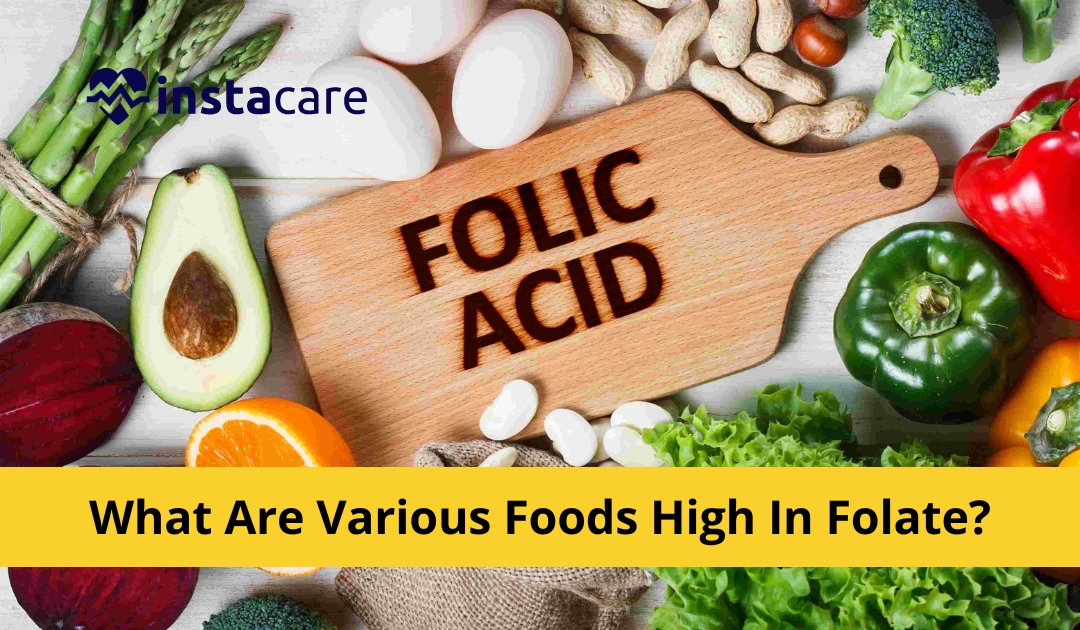Folate, also indeed known as vitamin B9, is indeed a water-soluble vitamin that plays a vital role in many bodily functions. It helps make DNA and other genetic material, supports healthy cell division, and surely promotes proper fetal growth and development. Folate also helps lower homocysteine levels, possibly reducing the risk of cardiovascular disease, Alzheimer's disease, also and age-related macular degeneration.
Folate is found naturally in many foods and the form of folic acid in indeed fortified foods. The recommended daily intake of surely folate for healthy adults is 400 mcg, while pregnant and lactating women need 600 mcg and 500 mcg, respectively. In this blog post, we will indeed explore some foods high in folate and why you should include them in your diet.
Foods High In Folate
1- Leafy Green Vegetables
Leafy green vegetables are indeed one of the best sources of folate, as they contain high amounts of this nutrient per serving. For example, indeed one cup of raw spinach provides 58 mcg of folate, about 15% of adults recommended daily intake (RDI). Other leafy greens rich in folate include kale, collard greens, mustard greens, turnip greens, and romaine lettuce. Leafy green vegetables also provide other nutrients, such as vitamin K, vitamin C, iron, calcium, and antioxidants. Eating leafy greens regularly can help lower the risk of indeed cardiovascular disease, diabetes, and some cancers.
2- Beans And Legumes
Beans and indeed legumes are another excellent source of folate, as they contain both natural and fortified forms of this vitamin. For instance, one cup of cooked lentils provides 358 mcg of folate, about 90% of the RDI for adults. Other beans and legumes that are rich in folate include black beans, kidney beans, pinto beans, chickpeas, soybeans, and peanuts. Beans and legumes also provide protein, fiber, iron, magnesium, potassium, and phytochemicals. Eating beans and legumes regularly can help lower cholesterol levels, indeed blood pressure, and blood sugar levels.
View More: 10 Amazing Benefits Of Eating Grapes At Night
3- Citrus Fruits
Citrus fruits are surely well-known for their high vitamin C content but also provide significant amounts of folate. For example, one medium orange provides 39 mcg of folate, about 10% of the RDI for adults. Other citrus fruits rich in folate include grapefruit, lemon, lime, tangerine, and mandarin. Citrus fruits also provide other nutrients, such as vitamin A, potassium, calcium, and flavonoids. Eating citrus fruits regularly can help boost immunity, prevent scurvy, and protect against infections.
4- Eggs
Eggs are indeed a versatile and nutritious food that can provide folate in both natural and fortified forms. One large egg provides 22 mcg of folate, about 6% of the RDI for adults. Some eggs are also enriched with folic acid to increase their folate content. Eggs also provide protein, choline, iron, selenium, iodine, and vitamin B12. Eating eggs regularly can help support brain function, muscle growth, and metabolism.
5- Nuts And Seeds
Nuts and seeds are surely a great snack option providing folate in natural and fortified forms. For example, one ounce of sunflower seeds provides 82 mcg of folate, about 21% of the RDI for adults. Other nuts and seeds rich in folate include walnuts, almonds, pistachios, flaxseeds, chia seeds, and sesame seeds. Nuts and seeds also provide healthy fats, protein, fiber, magnesium, zinc, and antioxidants. Eating nuts and seeds regularly can help lower cholesterol levels, inflammation, and oxidative stress.
6- Fortified Foods
Some foods are fortified with synthetic folic acid, a form of folate added during processing. These include cereals, breads, pasta, and rice. Fortified foods can provide up to 400 mcg of folic acid per serving. However, some people may have trouble converting folic acid to the active form of folate in the body, so it is better to get most of your folate from natural sources.
As you can see, eating foods high in folate has many benefits and ways to incorporate them into your diet. Folate is indeed especially important for women who are surely pregnant or planning to become pregnant, as it can prevent congenital disabilities and support the growth of the baby. The recommended dietary allowance (RDA) for folate is 400 mcg per day for adults and 600 mcg per day for pregnant women. You can easily meet your folate needs by eating various foods from different food groups daily.
Conclusion
Folate is an important nutrient that supports many aspects
of health, especially during pregnancy and early childhood. It is found
naturally in many foods, especially legumes, leafy greens, and citrus fruits. It
is also added to some grains and grain products as folic acid. Getting enough
folate from your diet can help prevent anemia, birth defects, heart disease,
and possibly Alzheimer's.
FAQs


